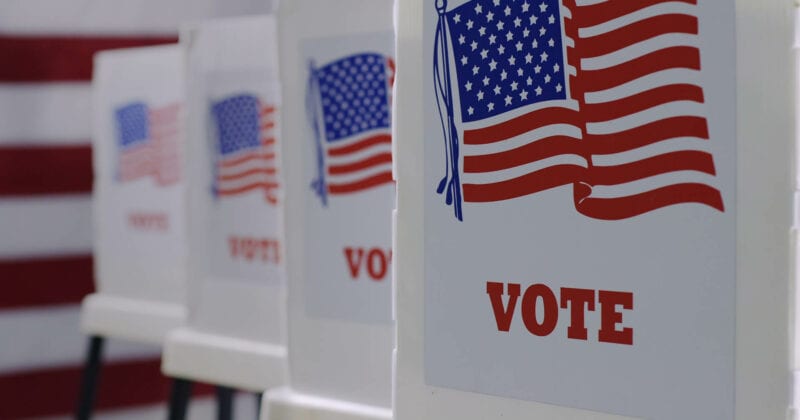
For many people, voting in elections is straightforward and accessible. But for the 1 in 4 U.S. adults who have disabilities, voting can be a major source of frustration. Even with some recent voting accessibility successes, many voting processes are just simply inaccessible.
With the United States presidential election fast approaching, voting accessibility is more important than ever.
Why Voting and Accessibility Matters
Voting accessibility is about more than just casting a vote. It’s about equal access and feeling that you have a voice
Participating in an election is powerful. It allows voters to feel that their voice is being heard. It is a great way to get involved and make impactful change in one’s community.
Whether someone is unable to vote because their county, city, state, etc. does not have accessible ballots or will not provide a more accessible option for voter registration, their voice is being taken away.
The Affects of Inaccessible Voting
Inaccessible voting has been a prevalent problem for years. In 2012, a number of blind voters in Alameda County, California were unable to vote because the electronic voting machines were broken. This led to a lawsuit that was not resolved until 2018. You can find out more about this voting accessibility lawsuit in one of our previous blog posts.
But even with years of demands for more accessible voting equipment and procedures, voters with disabilities still find that they are at a disadvantage. Many voters can’t even able to access important information because of inaccessible state election websites and accessibility issues on the presidential candidates’ websites.
Voter accessibility is especially important in 2020, with the COVID-19 pandemic affecting the way that every U.S. voter can participate in elections. In fact, a major source of frustration for voters this year is equal access to ballots. And it’s clear that the U.S. is not ready for online, accessible ballots any time soon.
Audit Finds Mail-In Ballot Applications Are Not Accessible
Deque Systems, a web accessibility assistance company, recently performed an audit of the forms required to apply for a mail-in ballot in the United States. Of all 50 states, only 7 had digitally accessible applications. The other 43 states had one or more instances of digital inaccessibility, which made the applications difficult, or, in some cases, impossible to complete.
This means that voters who were unable to complete the application because of accessibility issues will not be able to register for and receive a mail-in ballot. Because of the lack of access to mail-in ballots and personal limitations, these voters may not be able to participate in this year’s election at all.
Inaccessible Absentee Ballots
Some voters with disabilities in North Carolina, Iowa, and Texas are facing a great challenge with the 2020 U.S. election.
Many people with disabilities, like Ricky Scott, a blind, 59-year-old North Carolina resident, are used to casting their ballots electronically.
But this year, there is an extra threat to voters: the COVID-19 pandemic. Don Wirth, who lives in Ames, Iowa, has been legally blind for 25 years. As a 70 year old man, he’s at a high risk for COVID-19 complications. So, Wirth will be receiving an absentee ballot, which his wife will fill out and mail in for him.
However, as Wirth points out, not every blind or otherwise impaired person has someone who can help them vote by mail.
Scott, who is at a higher risk for COVID-19 complications, worries about voting in-person and potentially exposing himself to the virus.
North Carolina election officials maintain that online, at-home voting presents too much of a security risk. This means that voters like Scott will have to choose whether they want to risk their health to vote in-person, or give up their right to privacy and have someone else fill out an absentee ballot for them. Scott says his state is making him feel like a “second-class citizen”.
This discrepancy in equal voting access has led to multiple lawsuits from blind voters in North Carolina, Texas, and Iowa. If these lawsuits do not side with blind voters, they will have to decide whether they are going to risk their health and vote in-person, give up their privacy and have someone else fill out their absentee ballot, or give up their rights and abstain from voting altogether.
The Paper Ballot Push
Voting and accessibility isn’t just in the digital world- it’s prevalent at in-person voting stations at well.
Ruth Sager, a blind voter assumed she would be able to vote electronically at her polling station in Pikesville, Maryland. The electronic machines allow Sager to listen to all of the options on the ballot and cast her vote using a raised keyboard. She is then able to print out a completed ballot and turn it in to the election officials.
Instead, Sager was told that the polling station’s only electronic machine was down, and she would have to use a paper ballot. Two election officials would read the choices aloud, and mark her choices for her. Not only is this a violation of Sager’s equal access rights, but it’s also a violation of her voter privacy.
Sager isn’t the only disabled voter who’s had problems with voting and accessibility. In fact, many U.S. adults with disabilities feel the push towards paper ballots is leaving them out. Many election officials continue to use paper ballots because of potential security issues with electronic voting machines. For the millions of U.S. adults who have disabilities, this voting system leaves a lot to be desired.
The Future of Voting and Accessibility
While the issue of voting and accessibility has been around for years in the United States, the COVID-19 pandemic has certainly heightened concerns for accessible voter registration, ballots, and more.
What is the future of voting accessibility? That’s not so clear.
Unfortunately, since online voting hasn’t been made a priority before or during the COVID-19 pandemic, we may not be seeing any more steps toward accessible voting in the near future.
However, one thing is clear: voter accessibility needs to change. Without equal voting access for all, we are taking away the voices of millions of people. We are essentially sending a message to U.S. voters with disabilities that they are not as important as U.S. voters without disabilities.
While we wait for the day when voter accessibility is a priority, we will continue to fight for equal access for all, and do our part to make everyone’s voice heard.
